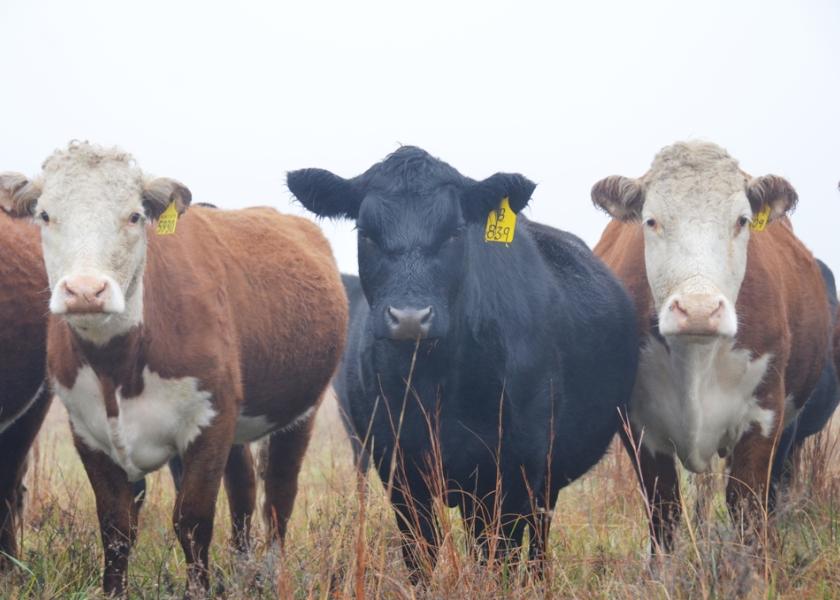Food Supply Chain Responds to COVID-19

Food supply chain experts say there is no need for consumers to rush to the grocery store and stock up on items they think are disappearing from the shelves. Tom Brand, Executive Director, National Association of Farm Broadcasting, implied their fears are misplaced. “Demand is the issue, not supply,” he said as moderator of a webinar discussion on the food supply chain, presented by The Agricultural Business Council of Kansas City on April 16, 2020.
The panel of food supply specialists included Nick Ebert, Vice President of Sales, Sysco, Kansas City; Dennis Rodenbaugh, Executive Vice President, Dairy Farmers of America; and Kevin Smith, Vice President, Sales & Marketing, Seaboard Foods. The economic fundamentals of production, inventory, transportation and liquidity are intact across all sectors of the food industry.
DFA’s Rodenbaugh said the immediate goal of his organization amidst the COVID-19 pandemic was to create a strategy guaranteeing health and market security for its member dairy farmers, and opportunity as the country emerges from the crisis. Since the diary co-op was dubbed an essential business and would remain operational, Rodenbaugh explained that early in the crisis, DFA made the decision to have 1,200 of the 8500 employees work remotely. Farmers, truck drivers and other staffers were provided with PPE gear and sanitizers so they could carry on as safely as possible. “Unfortunately, cows can’t be turned off,” he rued, “and gallons of milk had to be dumped.” Going forward, DFA is implementing and devising as many tools as possible to stabilize the market.
Kevin Smith noted Seaboard had no real playbook for the pandemic or the havoc it raised on an hourly basis. But, Seaboard rapidly rolled out a plan focused first and foremost on the well-being of its employees, customers and “society in general.” The blueprint for survival called for curtailing unnecessary travel, customer visits and aligning its safety and business guidelines with CDC policies and recommendations. Over the last 4 weeks, Seaboard has donated over 225,000 servings of pork products to a variety of charities. This is approximately 30 percent of what the company had donated on an annual basis in recent years.
Despite the upheaval in its day-to-day business routine, Sysco is determined to remain a global leader in food service distribution, said Nick Ebert. He, too, reiterated that his company’s first priority “is the health and well-being of its associates and customers.”
Emerging Innovation
In detailing other steps they were taking to mitigate COVID-19 damage to the U.S. economy, the panelists said their companies were making special appeals to grocery retailers and food service restaurants and drive-thru outlets. Rodenbaugh said part of their outreach included an appeal to retailers to review “limited quantity” purchase policies – underscoring the idea that producers had product, and the issue was not supply but demand.
Rodenbaugh described a DFA campaign to encourage food service companies to increase use of dairy ingredients by an ounce to every burger, taco and sandwich and offer cheesier pizza as a way to decrease dairy farmer raw product inventory and reduce dumping. Rodenbaugh stressed that dealing with retail grocers required a respectful approach in a stressful time. The key, he said, was “to let store managers make stocking decisions while encouraging them during this difficult time as they work to keep up with demand and manage their labor to accomplish that end.” The supply is available, he emphasized.
As food service operations internal dining options were closed and allowed only to serve take-out or delivery fare, Sysco has worked with operators to establish or strengthen takeout/delivery platforms. From available packaging options focused on product integrity to online menus and menu consolation, Sysco has worked to ensure operators are best prepared to work in the new environment. Sysco also is expanding its food service customer model to support more traditional retail grocer outlets among other market opportunities.
The critical lesson from this COVID-19 pandemic, said Rodenbaugh, “is as we move toward normalcy, we have to have planned for other Covids, and be prepared to pay for them with liquidity, strong P & L’s and strengthened supply chains.” He added it is not easy to predict pandemic outbreaks, but the economy can be financially prepared using technology and applying what we’ve learned from this one.







